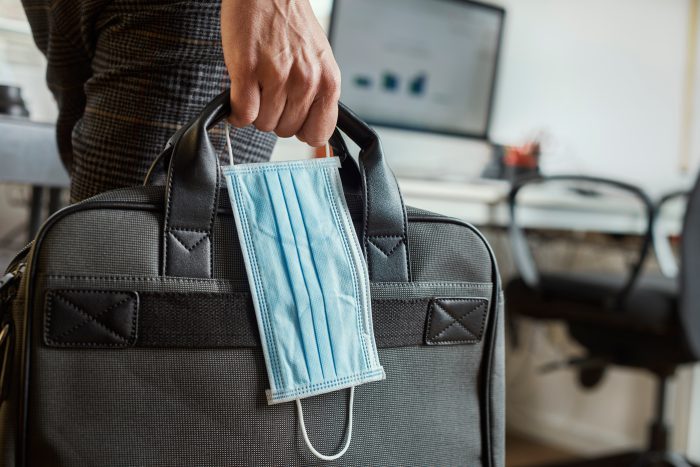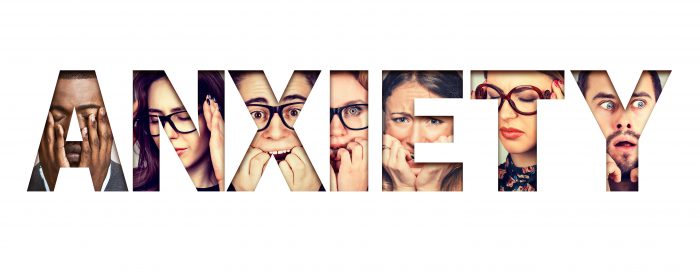
We have all had a tough time for the last 18 months, coping with the severe restrictions that the onset of coronavirus brought to the whole nation.
With the recent government announcement of virtually all restrictions being lifted, some people may wonder how to cope with sudden freedom. This can be as hard as having so many activities curtailed as we continued a rapid increase of cases and unfortunately, deaths.
Anxiety has been a common occurrence during this period and those that could cope with it numbered less than those who experienced some form of mental anguish. It may not be over yet, as numbers have increased since the lifting of most restrictions, and the reverse effect is now taking its toll.
Research conducted by well-known mental health organisations, such as ‘MIND’, have reported a 55% increase post-Covid for those that are in fear or anxious about socialising or even ‘popping out’. Mental Health institutes have now named this ‘Post-Covid Anxiety Syndrome’, as there are so many cases.
You must not worry, mental illness is recognised as a condition to be treated, not to be stigmatised. Seek comfort and advice from those around you and follow only medically founded information, not the random websites that have sprung up with no scientific foundation in what they say. Potentially, this could cause you even more anxiety with mixed messages.

There are many ways you can ease your anxiety and develop self-care. If symptoms overwhelm you, you can, of course, refer to a professional who is more than knowledgeable about symptoms of anxiety that may be overtaking your mind and well-being. Here, we go through typical symptoms of PCAS or Post-Covid Anxiety Syndrome and hopefully how to take away the negative thoughts or reduce them.
Take a few minutes to breathe deeply before youface any of your challenges and try to dispel negative thoughts. Pace yourself with the tasks at hand and take one at a time. If you have time, meditation, yoga and light exercise will do you the power of good. Stay in the present, try not to think of the past or what may happen in the future, stay focussed on ‘the now’.
Seek the help of close friends or family that understand you and discuss your feelings with them. If they suggest going out and you really are not ready for it, do not do it until you are. They can always drop in to see you for 10 minutes, if you are comfortable with that.
Approach your employers with your dilemma, hopefully most of them now are quite used to it. If most staff are going back to work, do not feel forced to do so, just start gradually and ease your way back. You do have employee rights.
An obsession with believing that germs are everywhere in terms of the virus and you have become unwittingly a slave to everything to do with safety or you will catch the disease, can be difficult to get rid of. Some people have taken this a little to the extreme such as sanitising every time you move or believing that everyone you pass by or be in the same room as, has the virus. Of course, continue to clean hands thoroughly and wear masks if you feel safer, but try not to go over the top.
Equally so if you have been double-jabbed think positively about it. The threat of catching it and potentially being hospitalised with a serious dose of the disease, has significantly diminished. Start to challenge yourself slowly, get out and socialise (safely) even if only for half an hour at a time, or go shopping to a supermarket who are maintaining their mask and distance rules. Trust in yourself but also apply logic when your head is clear. Remember, one tiny step at a time will begin to take away some of the stress.
Planning a social gathering is a particularly good idea, however long or short you make it. Increase this time as your symptoms gradually improve – and they will.
Think about thousands of other sufferers who may have been in total isolation and are now starting a rebuild of what is important to them. Avoid isolation by gradually emerging from your fear even if others are still having to isolate due to underlying health problems or vulnerability. Eat healthily, keep hydrated and take in fresh air in quiet places for some exercise. You must look after your body in all aspects.
Taking your time is extremely important to avoid any extra pressures on yourself. Follow your own lead and timescale and hopefully your mind will begin to improve faster than you think.
Any concerns you may have, or symptoms do not improve or become unbearable, do refer to professional medical help. Very little may happen overnight but potentially you will feel better in the short term, rather than the long, so keep it up!
Tags: Covid19, double-jabbed, Freedom Day, Wellness